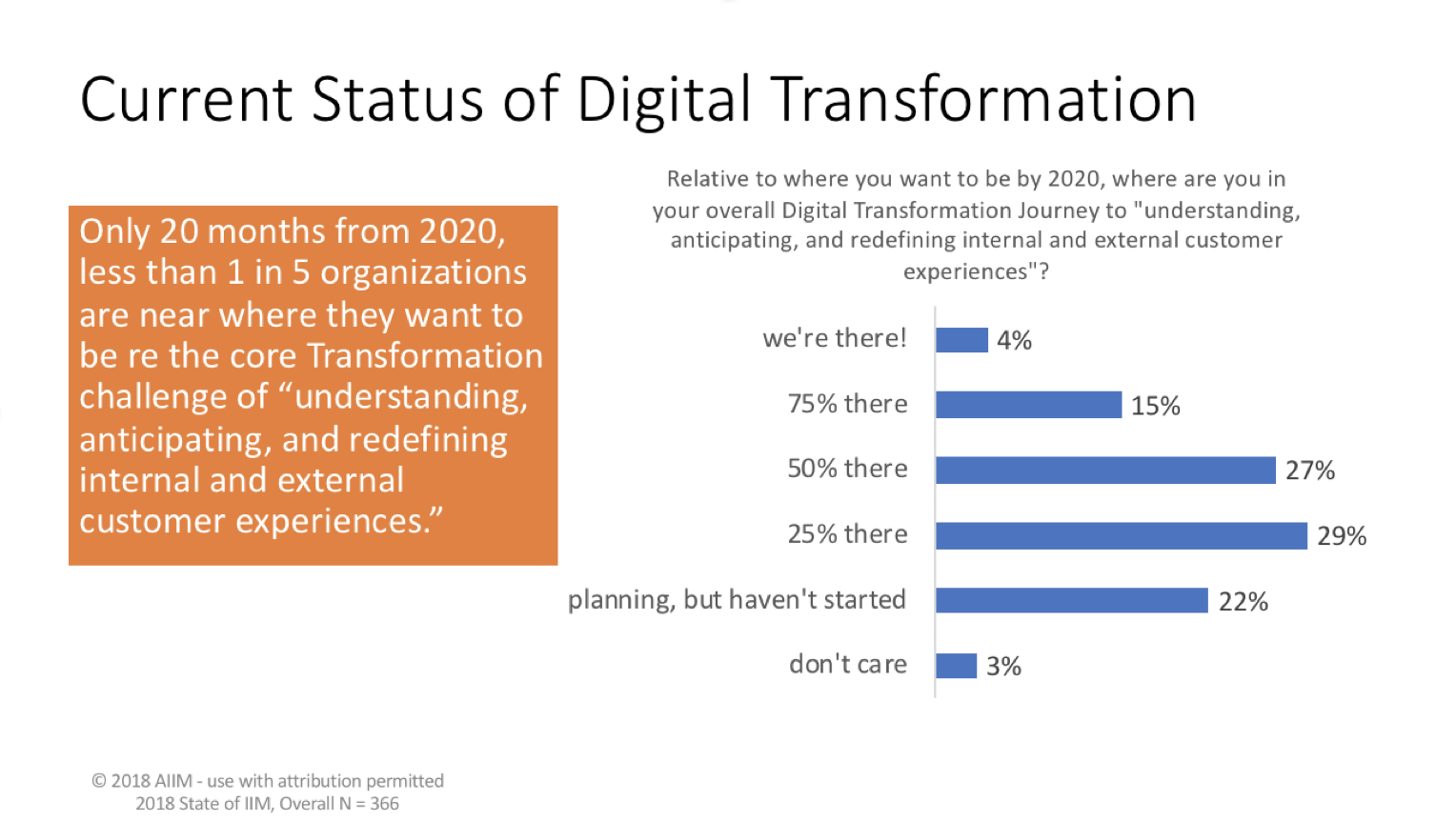The most recent AIIM industry survey – just released – paints a thought-provoking picture of the current state of digital transformation.
Over 53% of organizations believe they face a serious threat of digital disruption over the next two years, and in response, 81% of organizations say that digital transformation is “important” or “very important” to their organization.
However, only 1 in 5 organizations has managed to translate all of these good intentions into digital transformation reality.

Every organization – regardless of industry – is now a technology organization. But rising information chaos is a very real and strategic threat to the ability of organizations to succeed, or even survive.
The past year has been a year of change for the information professionals who are entrusted with managing an organization’s digital assets. Information is cascading down upon every organization in unprecedented volume, challenging traditional and manual concepts of records management and information stewardship. This information tsunami is happening at the very time that the value of these digital assets is more mission-critical than ever.
This trend is creating a demand for new information management practices that extend beyond traditional ECM. But I think we need to do a better job of talking about business problems rather than technology.
A true confession: As I talk to end users about the challenges facing their businesses, it is a rare event when “content management” tops the list – or even the broad term we’re using at AIIM to talk about the practices and methodologies critical to digital transformation – Intelligent Information Management.
Here are four business challenges that slow business agility and digital transformation:
- Our information is too difficult to manage.
- The most talented people in our organization are stretched beyond their capacity.
- Our security approach leaves too many gaps.
- The tools we have are frustrating and complex.
I think we need to “re-center” the content management conversation around these four key problems – real business problems that senior executives care about – rather than technology. In doing so, we can help organizations navigate very challenging times – and succeed in their digital transformation initiatives.
Learn more about enterprise content management.




